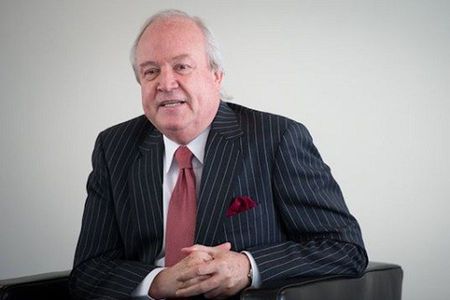Heine’s Expert Take on the Recent China-CELAC Forum
Pardee Professor Jorge Heine, former ambassador and cabinet minister of Chile recently appeared on CGTN America’s flagship talk show The Heat sharing insights about the latest session of China-CELAC Forum held in Beijing. The professor spoke about the significance of free trade for South America, and its budding relationship with China against the backdrop of steep tariffs imposed by the Trump administration.

Heine explained that free trade is vital for the Latin American and Caribbean economies as they heavily depend on exports and foreign direct investment. He also spoke about how the trade between China and Latin America has increased twofold since the inaugural China-CELAC ministerial meeting 10 years ago.
“As it happens, I was in Beijing at the first China-CELAC ministerial meeting that took place in January of 2015 and at the time, President Xi announced that over the next 10 years, trade between China and Latin America would double from $250 billion at the time to $500 billion in 2025. Now it’s interesting to note that that is exactly what happened. . . . today for South America, to your point, China is the number one trading partner.”
He emphasized that the Latin American region needs more trade and investment opportunities and the China-CELAC initiative is expected to amplify this very agenda with a projected trade figure of $750 billion by 2035. Heine also mentioned that countries like Colombia are pivoting their focus on green economy and green energy, and Chinese companies play a very important role in that regard.
The professor underscored that the current unraveling of the established trade policies is detrimental for an economy like Chile that has the largest number of free trade agreements (FTAs), which needs a multilateral trading order to thrive.
“Chile has around 30 FTAs with some 65 countries. . . . We believe very strongly in free trade and our economy depends on free trade. We have a small internal market, only 19 million people. So, for us you know the sort of dismantling of the existing trading order is very problematic.”
Similarly with the launch of two Chinese electric vehicle factories, Brazil is advancing its transition to clean energy. In addition to the existing trade alliance — worth up to $200 billion — its bilateral agreement with China has become central to the economy from an investment perspective too.
Catch Prof. Heine’s complete interview on CGTN America’s The Heat here.
Jorge Heine is a research professor at the Frederick S. Pardee School of Global Studies and an international relations expert, a lawyer, and a diplomat. He is currently a non-resident senior research fellow at the Centre for China and Globalization (CCG) in Beijing. He has written 18 books, including The Non-Aligned World: Striking Out in an Era of Great Power Competition (2025) and Latin American Foreign Policies in the New World Order: The Active Non-Alignment Option (2022) that explore the concept of active non-alignment, providing insights on how the Global South leadership navigate the changing international diplomacy landscape amid the U.S.-China rivalry.
To learn more about Prof. Heine’s work and achievements, visit his faculty profile.